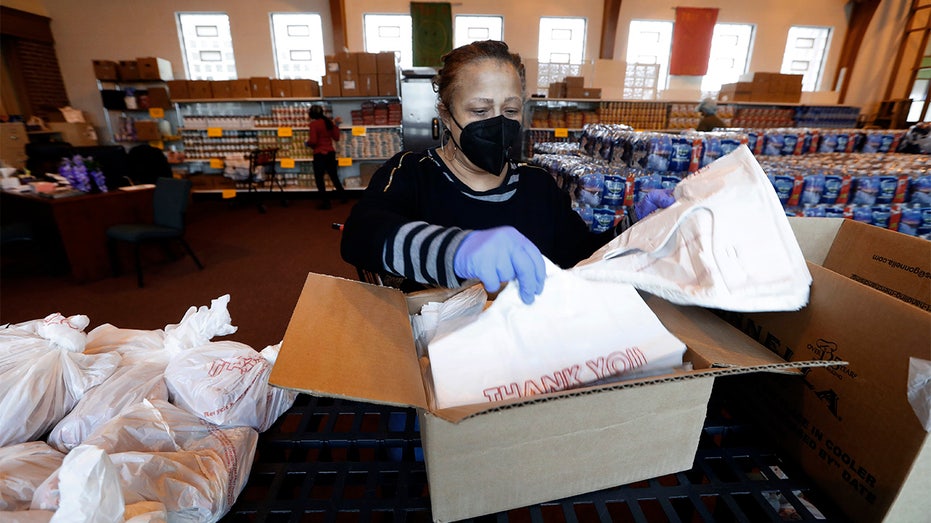$23M coronavirus mission to connect students in Detroit
One of the nation's poorest big cities takes a big step to prioritizing the issue of digital inequity
WEST BLOOMFIELD, Mich. — About 51,000 K-12 public school students in Detroit will receive computer tablets and high-speed internet to help transition from classroom to virtual learning during the coronavirus pandemic in one of the nation’s poorest big cities.
Schools across Michigan closed in March as part of the state’s stay home order to slow the spread of the virus. And while many suburban districts quickly moved teaching online, Detroit lagged because nine out of 10 students don’t have access to tablets, computers or the internet.
DOJ THWARTING ONLINE CORONAVIRUS SCAMS WITH HELP FROM INTERNET COMPANIES
“When our executive team began prioritizing COVID-19 relief efforts, the issue of digital inequity for Detroit students rose to the top,” said Jerry Norcia, president and chief executive of DTE Energy.
The Detroit-based utility’s foundation is one of the groups contributing a total of $23 million to the initiative. Each student in the Detroit Public Schools Community District is expected to receive a tablet by the end of the academic year in June.
DETROIR AUTOMAKERS, UAW TO CONTINUE TALKS OVER REOPENING US PLANTS
“We recognized that we needed to take action urgently to close the digital divide for these students and provide them with the tools necessary to thrive in the 21st century,” Norcia said.
About $17 million will be used to buy the tablets, according to district Superintendent Nikolai Vitti. Another $6 million will be spent on internet accessibility, which will be free to parents and students — who will own the tablets — for the first six months of the program.
The school district will fund internet access after that, Vitti said.
There also are plans to look at providing tablets and internet to 36,000 Detroit students who attend charter schools and other schools.
Nationwide, nearly 3 million students make do without home internet because of the high costs of service and gaps in its availability. The disadvantaged students are more likely to be students of color, from low-income families or in households with lower parental education levels.
CORONAVIRUS STUDENT LOAN INTEREST WAIVERS BEING OFFERED- HOW TO TAKE ADVANTAGE
The nation’s largest school districts, including Los Angeles and New York, are spending millions of dollars to provide devices and internet connections for students. Smaller districts are finding ways to boost wireless internet in school parking lots and distribute hot spots. Still, others are sticking with paper assignments and books because the digital equity issues are too much to overcome.
In April, Michigan Gov. Gretchen Whitmer issued an order closing K-12 school buildings for the rest of the academic year and that the state’s 1.5 million-plus students would learn remotely. Districts were given flexibility on how to create distance learning programs with phone lessons, online classes and mailing materials to homes as options.
The Detroit district printed lesson packets. Online learning also was made available to students with internet access.
About a third of Detroit’s 640,000 residents are believed to be living in poverty. In 2018, the median household income in the city was about $29,500, according to the U.S. Census. Michigan’s poverty rate is about 15% and the state’s median household income in 2018 was about $54,900.

Rev. Roslyn Bouier, Director of the Brightmoor Connection Food Pantry prepares bags of food in Detroit, Monday, March 23, 2020. The global coronavirus pandemic has brought water shutoffs in Detroit and in communities across the nation into sharp focu
“When we look back to this time in 10 years, we will see that this moment changed the trajectory of education in our city,” Detroit Mayor Mike Duggan said of the effort to help students learn online.
Fellowship Baptist Church pastor the Rev. Wendell Anthony began approaching philanthropic and business leaders and Duggan three to four weeks ago with the idea. How the city is responding to the pandemic “has caused us to stand,” said Anthony, who also is president of the Detroit branch of the NAACP.
Other partners in the Connected Futures program include the Kellogg Foundation, Quicken Loans, General Motors and the Skillman Foundation.




















